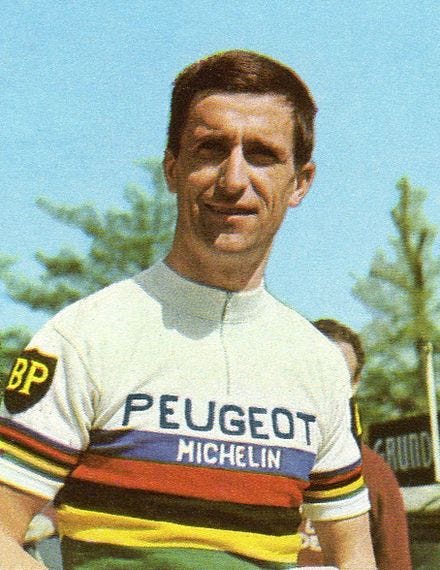Skyfall #3: Drugs at the TdF, backstabbing, lies, cover-ups, omertà. Hello, British cycling
In the 3rd part of my series about drugs & dishonesty in British cycling, I connect doping at the 1987 & 2012 Tours de France to a rivalry between Wiggins & Froome
Before we get to the latest instalment in this series on the darkness at the heart of British cycling’s golden era – and today’s reporting includes bloody syringes in a fast food restaurant toilet and equally bloody infighting at a UK government enquiry into doping – I’d like to thank you for the incredible and heartening feedback I’ve received since I began this series on Tuesday.
I’ve been overwhelmed by the response to those first two pieces, and to the huge amount of interest that you, Sporting Intelligence’s subscribers, have shown via Twitter and Facebook and in messages and emails.
My mind was also slightly blown late on Tuesday evening when I received the following message on WhatsApp.
Floyd Landis, who won the 2006 Tour de France before being stripped of that title for doping, had asked a mutual acquaintance for my phone number because he had subscribed to this site to read this series.
I don’t know Floyd. I’ve never never met him and had never spoken to him, but I called him when I got his message because I was fascinated to hear his perspective.
We talked for 20 minutes and he echoed a famous line from Jacques Anquetil, the first man to win the Tour de France five times: you don’t win the Tour de France on bread and water.
If there is any interest from you, the readers, to hear in more detail from Landis, by all means tell me in the comments section and I can set up an interview.
When you look at a list of the cyclists who have won the Tour de France the most times, Lance Armstrong is no longer there because, technically, he is no longer considered the winner of the 1999 race or the six that followed.
We all know, now, that he achieved those wins through systematic doping. And I would again urge anyone interested in the background to that to visit the USADA archive of materials that led to Armstrong’s downfall in 2012.
Armstrong’s seven Tour wins made him the most successful rider of all time in that race, and of the four other riders who have won five TdF titles each, we know Anquetil was a doper, and Eddy Merckx (winner from 1969 to 1972, and 1974) was a doper, and Miguel Induráin (winner 1991 to 1995) was a doper and Bernard Hinault (winner five times between 1978 and 1985) was, at best, ambivalent about his own relationship with drugs.
Drugs and Grand Tour cycling are synonymous and have been for many decades. British cycling hero Tom Simpson, an Olympic and Commonwealth Games medallist in the 1950s, became a road race world champion in the 1960s and won the BBC Sports Personality of the Year award in 1965.
And he took performance-enhancing drugs. When he tragically died, at the age of 29, during an ascent of Mont Ventoux during the 1967 Tour de France, his post-mortem found a deadly mix of amphetamines and alcohol in his system.
But back to the 1987 Tour de France - the last year a British team took part before Team Sky’s debut in 2010.
There is a common link between that 1987 Tour and the 2010 Tour - a star rider in that 1987 team, ANC-Halfords, who we have already featured prominently in this series, and was a career-long doper - according to many sources - and rose to be the most influential coach in British cycling and at Team Sky.






